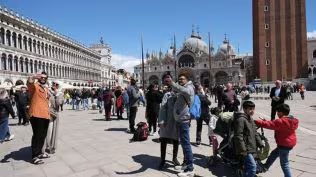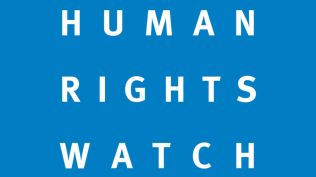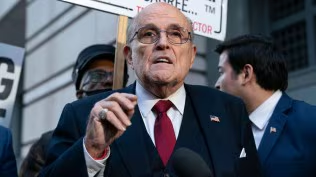Is Donald Trump immune from criminal prosecution? US Supreme Court to decide today
In 2021, former US president Donald Trump faced impeachment for inciting the Capitol attack on January 6. At that time, his attorneys asked the senators to acquit Trump, arguing that any charges against him should be addressed in the court, not Congress. Now, his legal team is taking a different approach as they prepare to appear in front of the Supreme Court of the United States (SCOTUS) on April 25.
Trump is seeking to have his criminal charges dropped after his alleged involvement in trying to overturn the 2020 election results. His lawyers argue that former presidents are immune from prosecution for their actions while in office unless Congress has first impeached and convicted them.

Here’s all you need to know:
What is the case against Trump?
The SCOTUS is set to rule on whether former Trump is immune from prosecution for his efforts to overturn his loss in 2020 elections which fueled the Capitol attack on January 6, 2021.
Trump is facing conspiracy charge, that include defrauding the United States, disenfranchising voters, and obstructing the process by which votes are counted and the results are certified by the US Congress on January 6, 2021. According to details of the charges against him that led to his indictment, Trump and his associates claimed that the election was stolen while knowing that their claims were false — claims which directly led to the Capitol attack, when the election results were being certified.
The timing of the Supreme Court’s decision is crucial as it could impact the trial schedule. Trump has been pushing to delay the trial after the 2024 election, and a delayed trial ruling could work in his favor.
What could the Supreme Court do?
There are three ways in which the Supreme Court might pass its judgment:
-Reject Trump’s arguments and allow the trial to proceed.
-Declare that the former presidents are immune from prosecution for official acts during their presidency.
-Spell out the circumstances under which former presidents are shielded from prosecution and return the case to the lower court for consideration.
Arguments for immunity
Trump’s legal team argues that the former presidents are entitled to immunity for their official acts. They claim that without immunity, politically motivated prosecutions against the president would be common and would further impact the ability of presidents to function as commander-in-chief.
Arguments against immunity
Special counsel Jack Smith argues that the US constitution does not afford to give absolute immunity to presidents when the acts are not a part of the president’s official duties — and Trump’s alleged act includes engaging in a scheme to enlist fake electors.
Lower court decisions
The lower courts, including a unanimous three-judge panel in an appeal court in Washington DC have rejected Trump’s argument for immunity.
Trump’s other trials
Trump’s other trials include the “hush-money” case where he paid $130,000 to adult film actress, Stormy Daniels to keep her quiet about an alleged sexual encounter. He has also claimed immunity for allegedly hoarding classified documents after leaving White House, and in his election interference case in Georgia.
Disclaimer: The copyright of this article belongs to the original author. Reposting this article is solely for the purpose of information dissemination and does not constitute any investment advice. If there is any infringement, please contact us immediately. We will make corrections or deletions as necessary. Thank you.





